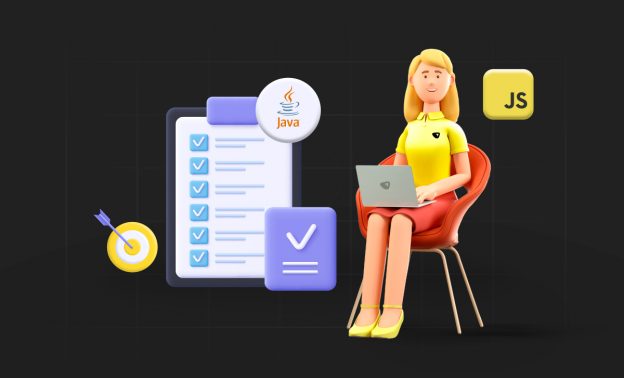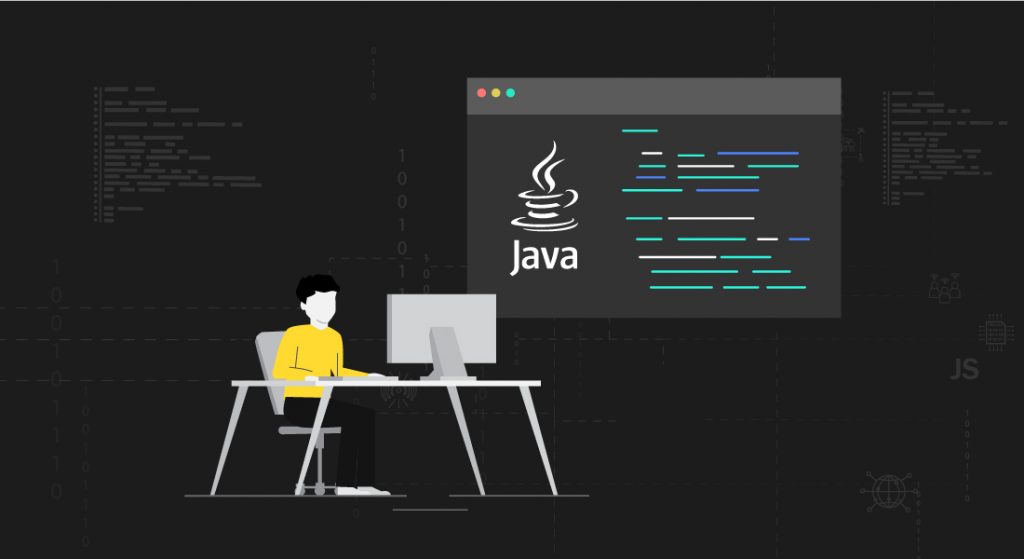Hiring a Java developer is nothing less than solving a complicated puzzle. You are looking for someone who’s technically proficient, fits your organization well, and—let’s not forget—fits within your budget.
But let’s be honest here: the cost of hiring a Java developer isn’t as easy as looking up salary charts. It requires a thoughtful analysis of market trends, project requirements, and hidden expenses that usually catch hiring managers off guard.
Keep reading below to learn about the cost to hire a Java developer based on their roles along with some effective cost-saving tips.
Understanding the Role of a Java Developer

When speaking of “Java developers”, you might think of caffeine-fueled coders, but their role is far more complicated and nuanced.
Core Responsibilities
Java developers are the backbone of numerous tech projects, responsible for:
- Writing, testing, and maintaining code using Java
- Creating applications that can grow with the user base for web, mobile, and business systems
- Finding and fixing issues in complicated software systems
- Collaborating with designers, QA teams, and stakeholders to complete project objectives
Essential Skills and Qualifications
To identify top-notch talent, look for these must-haves:
- Technical Expertise: Proficiency in Java frameworks like Spring and Hibernate
- Problem-Solving Skills: An ability to craft efficient, bug-free solutions
- Experience with Tools: Mastery of Git, Jenkins, and cloud services
- Certifications: Java SE/EE certifications indicating a higher skill level
Factors Influencing the Cost of Hiring

Businesses planning to hire a Java developer must consider the following factors that influence the cost other than the base salary.
1. Experience and Expertise Level
- Entry-Level Developers: Affordable but might need more oversight and mentoring
- Mid-Level Developers: A balanced option with the ability to deliver independently
- Senior Developers: Expensive but indispensable for complex, high-stakes projects
2. Geographical Location
Where your developer lives matters—a lot. A U.S.-based developer often earns five to six times more than someone in Eastern Europe or South Asia.
Here’s a snapshot:
- United States: $75,000–$130,000 per annum
- India: $10,000–$30,000 per annum
- Eastern Europe: $40,000–$70,000 per annum
Companies looking for budget-friendly options can recruit developers from India and Ukraine. These countries are global hubs for Java developers, with competitive rates and stellar talent pools.
3. Project Complexity and Scope
Let’s say you need a basic and affordable inventory management system. Now, compare that to a high-traffic e-commerce platform with real-time analytics and AI recommendations. Naturally, the cost skyrockets with complexity.
4. Employment Type: Full-Time vs. Freelance
Full-Time Developers
- Better for long-term projects
- Expect consistent availability but with added overhead-like benefits
Freelancers
- Perfect for short-term requirements or one-off tasks
- May have to account for changes in availability or commitment
Average Java Developer Salary and Hourly Rates
Let’s put some numbers on the table to help you gauge the budget more precisely:
Global Salary Overview
- United States: $75,000–$130,000 annually
- UK and Western Europe: $50,000–$90,000 annually
- India and Southeast Asia: $10,000–$50,000 annually
Freelance Rates vs. In-House Salaries
While hiring freelance developers might seem more expensive on an hourly basis, they can usually help cut costs in the long run, particularly for short projects. On the contrary, in-house developers offer better continuity for long-term jobs.
Additional Costs to Consider
Salary is just the beginning. Let’s talk about the less obvious expenses that can take your budget by surprise.
1. Recruitment and Onboarding Expenses
From job postings to LinkedIn subscriptions, recruitment is never free. Add in onboarding activities, and you could be spending thousands before your developer even starts coding.
2. Training and Professional Development
Want your developer to keep up with the latest tech? You might need to sponsor courses, certifications, or conference tickets.
3. Tools, Software, and Licensing Fees
Java development requires more than just a laptop. Think IDEs like IntelliJ IDEA, cloud platforms like AWS, and DevOps tools like Docker. These aren’t cheap, especially if you’re scaling up.
4. Employee Benefits and Perks
Full-time employees expect more than a paycheck—health insurance, retirement plans, and paid time off can significantly inflate costs. Moreover, according to SHRM, onboarding and training a new developer costs companies an average of $4,129 per hire.
Cost-Saving Strategies
Java developer recruitment doesn’t have to break the bank. Intelligent planning and strategic choices can reduce costs without giving up on quality.
1. Leveraging Remote Work Opportunities
Hiring remote developer allows you to explore a global talent pool. This indicates hiring skilled professionals from countries with lower living costs and comparatively affordable salaries.
2. Outsourcing to Cost-Effective Regions
Countries like India, Ukraine, and the Philippines are well-regarded for high-quality developers at competitive prices. In addition, outsourcing companies can even address the nitty-gritty, like payroll and compliance.
3. Hiring Junior Developers with Growth Potential
Instead of investing a large sum of money in experienced professionals, consider hiring talented junior employees and supporting their growth. They are more cost-effective and can bring fresh energy to your team.
4. Utilizing Freelancers for Short-Term Projects
Freelancers are perfect for getting things done quickly or for specialized tasks. For that you can rely on reliable hiring platforms to hunt developers for specific projects without needing to commit long-term.
Best Practices for Budgeting
You can’t control everything, but good budgeting keeps surprises to a minimum. Here’s how you can do it:
1. Define Clear Project Requirements
Know exactly what you’re building before you start hiring. Vague objectives often lead to scope creep, which inflates costs.
2. Set a Realistic Budget
Overestimating slightly can prevent unexpected shortfalls. Be realistic about costs and include all line items, from software licenses to training.
3. Allocate Funds for Unexpected Expenses
Every project hits bumps in the road. Keep a contingency fund for emergencies, like the need to hire additional resources.
4. Review and Adjust the Budget Regularly
Costs evolve, especially in longer projects. Regularly reviewing the budget ensures you can course-correct before overspending spirals out of control.
Final Thoughts
Hiring a Java developer is not just about spending money—it is an important decision that influences the direction of your work and your organization’s success. Whether you need a new coder full of promise or an experienced pro who can handle tough tasks, the perfect Java developer can turn your ideas into actual achievements.
The key to successful hiring is not about overspending or taking shortcuts—it’s about planning wisely, understanding where to put your money, and where to be thrifty.
Frequently Asked Questions
What is the average cost to hire a Java developer?
Ans: The cost to hire a Java developer depends on factors like location and experience but typically ranges from $15,000 in cost-effective regions to $130,000 in the U.S.
How do experience levels affect a Java developer’s salary?
Ans: A junior developer may earn half as much as a senior developer. However, seniors often justify their higher rates by delivering faster and more efficient solutions.
What are the risks of hiring less experienced developers?
Ans: Inexperienced developers might produce suboptimal code, leading to higher maintenance costs and delays.
What are the current trends in Java developer compensation?
Ans: According to a recent report, Java developers with a knack for cloud computing and AI integration usually land salaries up to 14% higher than the prevailing market rate.




















